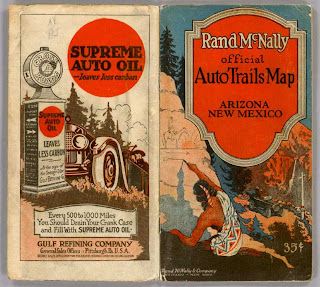Neo-Aristocracy is a highly individualized aesthetic and alternative lifestyle. After all, a person's best is a personal determination. However, we do not live in a vacuum. The laws of the universe do govern- even if the more superfluous laws of society can be ignored. Therefore, there are some first principles which anyone embarking on the path of Neo-Aristocracy should embrace. For sake of mnemonics, I've categorized them under three key words: sustainable, attainable, and benevolent.
Sustainable:
The Merriam Webster dictionary defines sustainable as: of, relating to, or being a method of harvesting or using a resource so that the resource is not depleted or permanently damaged. Sustainability is increasingly becoming a key word and will become even more prevalent in the future. As we realize that we do not live on a planet with infinite resources, we are going to need to stop acting like we do. Sustainable practices are a recognition of the cycles and laws of nature and attempting to use those to benefit ourselves in the long term rather than ignore them and reap short term gain.
A Neo-Aristocrat applies this principle to different levels of her life. On a global level, she realizes that the earth is indeed finite and strives to do as little damage to the environment as possible. Buying second hand, reducing carbon footprints, buying local, reusing, reducing, and recycling- all the catch phrases that have become so popular in the past years- she knows are possible to embody without sacrificing a luxurious, decadent life.
On a personal level, as much as a Neo-Aristocrat might like to spend her entire bank account on good stationary, beautiful clothes and interesting books- she knows that the future must be considered first. Buy champagne or next weeks groceries? There is a hierarchy of needs (though it may be unconventional) and since the Neo-Aristocrat is life affirming, starvation isn't a choice.
Sustainability, in short, is the ability to weigh the tradeoffs today for the benefits in the future. A Neo-Aristocrat is able to look into the far future of generations to come, the middle future of the course of her own life, and the near future of the next few years, months or days and balance her goals and luxuries with the concerns of time.
Attainability
All our lives, we are told "You can do anything you want if you put your mind to it!" or "Reach for the stars. Be whatever you want to be." Encouragement of children's passions is a necessary step for their growth, but over encouragement can lead to unrealistic expectations.
When we were children, we dreamed of being astronauts, presidents, prima ballerina's. But there comes a time when it is necessary to wake up and say "I am 23 years old. Based on the choices I have made up until this point, I am not going to be the president of the United States or a ballerina or an astronaut." It is hard to admit- very, very hard- that our potential isn't infinite and that it is better to stop wishing for things so far beyond our reach. A person in a position that exceeds their ability is even worse than someone whose potential isn't being fully utilized.
A Neo-Aristocrat has the self awareness, the clear sight, and the courage to take a breath and say "This is who I am. That is not what I will or can become. Instead, I will focus on becoming the best that I am able to be. Not the best as the world decrees." Because there is a difference between doing your absolute best and being the absolute best. The first we have control over. The second we don't.
Attainability is applied not only to our careers even if that is how it is most commonly found- but also to our possessions and lifestyles. A Neo-Aristocrat must be able to come to terms with the fact that she will not have a sprawling mansion in France, a wardrobe commissioned by the best seamstresses in the world, time to lounge about the house or devote herself to studies or pleasure, and every little thing that she dreams about.
This principle probably deserves another post, because there is a difference between being realistic and settling. Realistic desires balances between the unhappiness of never achieving your grand dreams and the resentment of betraying your potential to have something lesser.
Benevolence
A Neo-Aristocrat knows that if the pursuit of their desire brings too much harm into the world, then the desire should be reconsidered. Benevolence has no set laws because there are times when your actions will cause pain to another, but both the action and pain are necessary- such as getting a job that your co-worker didn't. But there are some actions, such as toying with another's emotions to reach your ends, which are unacceptable.
Benevolence is the most outward looking of these qualities. It is the principle which sets the Neo-Aristocrat in society. No one can pursue their desires heedless of how those desires affect others. Benevolence is the art of making sure you aren't destroying more relationships and benefit than you gain from your desire. On the other hand, Benevolence is also the ability to help others with their path towards their best as well.
As a Neo-Aristocrat works towards her best in life, she must keep these principles in mind so as not to forget her connections and relations to the rest of the world. She does not exist outside of reality, outside of herself, or outside of society. Whatever best she decides to pursue can not ignore these factors. Beyond that, she is open to be everything she can.






.jpg)







